
There has been no scientific headcount of caste numbers since the British era, and the lack of authentic empirical data has led to a situation where caste groups and their leaders routinely make vociferous demands based on self-ascribed numbers that everyone else sees as exaggerated.
At present, only data on the Scheduled Castes and Tribes (SC/ ST) is collected in the decadal census. But if Other Backward Class (OBC) leaders have their way, that state of affairs could change.
After Bihar launched its own caste census on January 7, political parties and social groups in Maharashtra have revived their long-standing demand for a similar exercise to be conducted here.
Former minister and senior NCP leader Chhagan Bhujbal has set the ball rolling by writing to Chief Minister Eknath Shinde and deputy CM Devendra Fadnavis seeking a caste census on the lines of that in Bihar. Bhujbal, who belongs to the OBC Mali (gardener) community, has pointed out that OBCs and denotified and nomadic tribes could not be provided development programmes and adequate budgetary support due to the lack of scientific figures about them.
OVER THE YEARS
In independent India, data about only SCs and STs was collected in the census. However, a headcount of backward class groups was recommended by the Kakasaheb Kalelkar (1955) and B.P. Mandal (1980) commissions
During Maharashtra Vikas Aghadi rule, the assembly unanimously approved a Jan. 8, 2020 resolution seeking caste-based census. However, the Centre has refused to enumerate caste-wise populations other than SC and ST in the much-delayed 2021 census
OBCs are estimated to be around 53 per cent of Maharashtra's population (43.7 per cent Hindus and 8.4 per cent non-Hindus)
This story is from the January 30, 2022 edition of India Today.
Start your 7-day Magzter GOLD free trial to access thousands of curated premium stories, and 9,000+ magazines and newspapers.
Already a subscriber ? Sign In
This story is from the January 30, 2022 edition of India Today.
Start your 7-day Magzter GOLD free trial to access thousands of curated premium stories, and 9,000+ magazines and newspapers.
Already a subscriber? Sign In
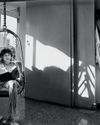
He gave the beat to the world
He would pick up the rhythms of each experience of mobility and weave them into his taals. Thus it was that he reflected joy and laughter in rhythmic cycles...such was the magic of Zakir's fingersText and photographs by Raghu Rai
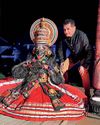
KERALA TOURISM CAMPAIGN, 1989 - TICKETS TO PARADISE
All it took was a catchy tagline-'God's Own Country'-for the world to discover Kerala's wealth of natural beauty. It remains among the best tourism ad campaigns, earning the state a place among top 10 international destinations

SPIRITUALITY - THE GURUS OF COOL
Among the cult Indian gurus, no one had a bigger hold on western minds than 'Osho' Rajneesh. He's also perhaps the role model for the enterprise-building gurus of today
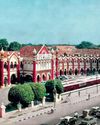
RETAIL SHOPPING - THE MALL MANIA
Shopping malls, a 1990s innovation in India, changed the way the Indian middle class shops. Their success now lies in being 'shoppertainment' destinations, offering something for everyone
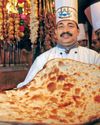
CULINARY RENAISSANCE, 1978 - TANDOORI NIGHTS
ITC's Bukhara and Dum Pukht turned the world to tandoori cuisine and had an enormous impact on the F&B industry. Decades on, they are still a pit-stop for celebrities and heads of state visiting Delhi
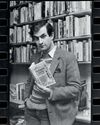
INDIAN WRITING IN ENGLISH - REVENGE OF THE NATIVE
Rushdie lit the way but Indian writing in English has taken a life of its own in the past few decades, with translated Indian fiction most recently having its moment in the sun
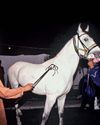
INDIAN ART - A BRUSH WITH GOLD DUST
The 1990s economic liberalisation came as oxygen, lighting up the Indian art scene. Today, artworks by established masters routinely go for astronomical amounts
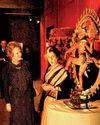
FESTIVAL OF INDIA, 1982 - CULTURE CAPITAL
The Festival of India grew into a symbol of our 'soft power', introducing our art and aesthetics to a global audience while also helping rebrand our domestic products

THE INDIPOP TREND - DISCO GOES DESI
For ages, the film song ruled. Nothing else was audible. Then came Nazia, charioteered by Biddu, and Indian ears went into a pleasant madness. Literally, Disco Deewane. A whole genre was born
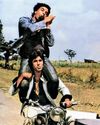
SHOLAY 1975 - THE BIRTH OF THE FANDEMIC
India had seen hits before. But Sholay seared into its collective psyche like a badland bullet. The effect was on a scale never seen before- one film creating a new mass folk culture. And a trail of monster blockbusters that still continues